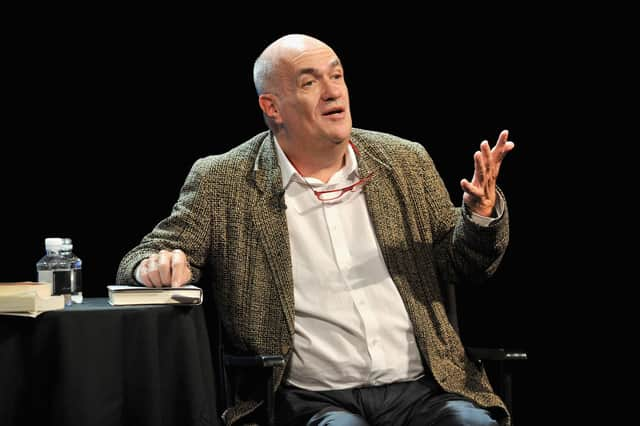Festival review: StAnza, various venues, St Andrews


In March 2020, StAnza was one of the last literary festivals to go ahead before the world changed. Two years later, it is one of the first to negotiate this changed world in a new hybrid model, with some guests appearing on screen (the programme is not always clear enough about this), and audiences in person and online.
The majority, however, were present in St Andrews and, with more than 150 events, the festival managed its usual variety, with readings, discussions, performances and workshops. Guests ranged from leading novelist Colm Tóibín (on screen), reading for the first time from his debut collection of poems, Vinegar Hill, to a Saturday night performance by writer, beatboxer and rapper Testament.
Advertisement
Hide AdHuman rights lawyer and poet Mona Arshi gave the StAnza Lecture, an impassioned and timely attack on the Borders and Nationality Bill, set to become law in May, the “biggest assault on refugee rights” since the 1951 UN Refugee Convention. Drawing on writers down the centuries, she argued that movement was a part of the human condition, and welcoming the stranger a basic measure of our humanity. On Thursday, the festival had welcomed Ukrainian poet Lyuba Yakimchuk, who managed to make the journey from Kyiv, crossing the Polish border on foot.
Responding to this year’s theme, StAnza continued to explore whether or not poetry can be a vehicle for stories. We heard the stories of British-Latinx poet Leo Boix’s immigrant experience and Pascal Petit’s Indian grandmother, J L Williams on early motherhood during the pandemic and Daniel Sluman’s powerful dispatches on disability and illness.
Northern Irish poet Gail McConnell confessed to resisting stories, as she navigated the conflicting narratives around the murder of her father by the IRA. Yet her collection, ‘The Sun Is Open’, is her own negotiation with that story. And poet and playwright Glyn Maxwell described how he is in the process of reworking classic English poems to tell new stories from today’s political landscape.
Can poetry tell stories? Unequivocally, yes. Perhaps in a more complex, nuanced and multi-faceted way than a prose narrative.
A message from the Editor:
Thank you for reading this article. We're more reliant on your support than ever as the shift in consumer habits brought about by coronavirus impacts our advertisers.
If you haven't already, please consider supporting our trusted, fact-checked journalism by taking out a digital subscription at https://www.scotsman.com/subscriptions